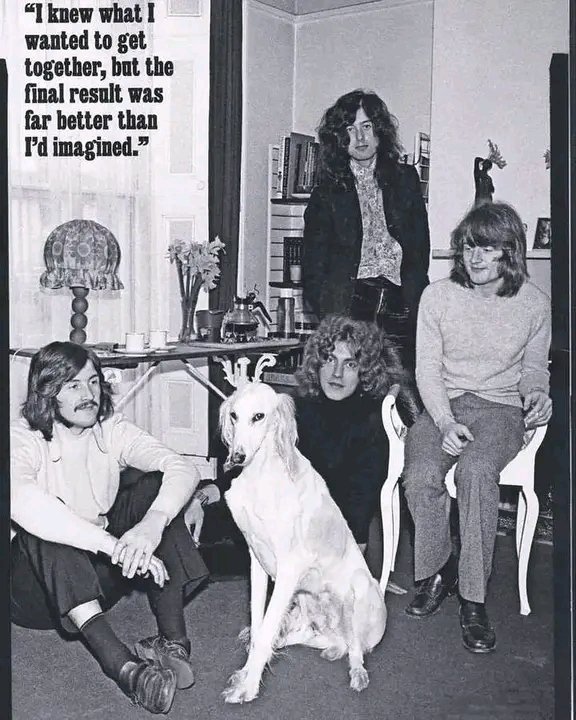“Let Them Be Themselves”: How Jimmy Page’s Vision of Creative Freedom Forged the Magic That Made Led Zeppelin Unstoppable
In a revealing recent interview, Jimmy Page looked back at the earliest, most formative days of Led Zeppelin—not just as the architect of one of rock’s most legendary bands, but as a leader who knew that true greatness comes when each member is allowed to be their authentic self. From the beginning, Page’s goal wasn’t to create just another successful British rock group; it was to build something radical. With help from fierce and fearless manager Peter Grant, he envisioned a band grounded not in formulas or ego but in creative freedom. That vision birthed Led Zeppelin—a band that would not only shatter boundaries but also define the very sound of hard rock.
It all began under the name The New Yardbirds, but Page quickly saw this wasn’t a continuation of anything—it was the start of something entirely new. He vividly recalled the moment the spark ignited. “I said, ‘Let’s play Train Kept A-Rollin’,’” he shared, referencing the blues-rock track he’d played with The Yardbirds. But this time, something was different. With Robert Plant, John Paul Jones, and John Bonham in the room, the song transformed into something uncontainable. “We didn’t stop playing,” Page said. “I was trading off with Robert, and it was clear right away—it was destined to be.”
That first rehearsal wasn’t just promising—it was electric. And it wasn’t long before Page and Plant continued rehearsing in Page’s home in Pangbourne, feeding the creative fire. Yet one of Page’s most profound decisions was his approach to drummer John Bonham. Instead of dictating parts or insisting on precision, he told Bonham simply: “Play how you feel. Not like anyone else wants you to play—play like you.” It was a bold directive, and it unlocked Bonham’s now-legendary thunderous style. That same trust applied to each member of the band, allowing them to push their own boundaries and shape the sound organically, rather than forcing a mold.
This philosophy would come to define Led Zeppelin’s musical journey. Whether crafting riff-heavy epics like Whole Lotta Love or the mystical acoustics of Going to California, Page understood that chemistry wasn’t something you engineered—it was something you nurtured. He’d bring in ideas—riffs, progressions, moods—but leave space for his bandmates to react instinctively. “I knew what the band could do,” he explained, “so when I was writing for each album, I was writing for them. I’d bring something in and say, ‘Let’s go,’ and we’d immediately be in the zone.”
That zone was where the magic happened. It was where four distinct musical identities collided, challenged each other, and created songs that still shake the earth decades later. Page’s gift wasn’t just his guitar wizardry—it was his ability to recognize talent and give it room to grow. In letting Led Zeppelin be truly collaborative, he didn’t lose control—he set something far more powerful in motion.
What Page understood from the start is something that still resonates: when you trust brilliant musicians to be their full selves, when ego steps aside for the sake of expression, the results can be timeless. Led Zeppelin wasn’t just a band. It was an experiment in freedom—and thanks to Jimmy Page, it worked.
